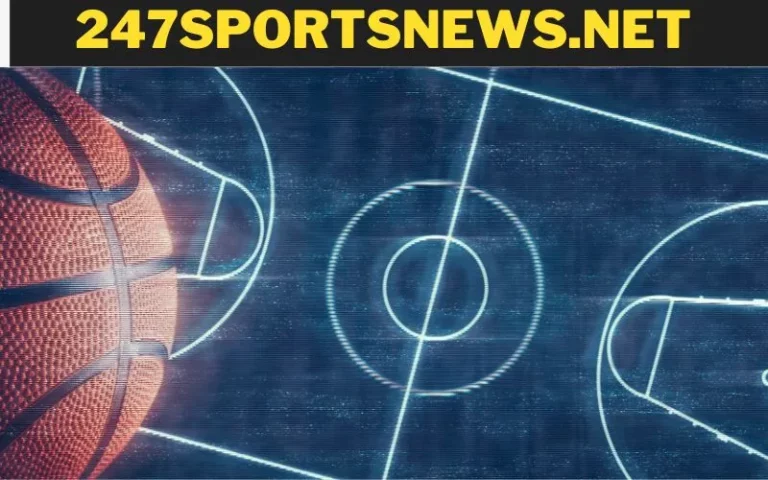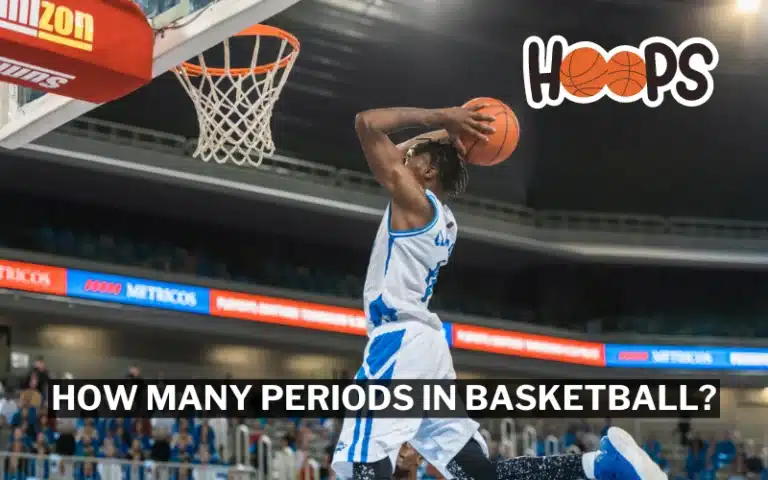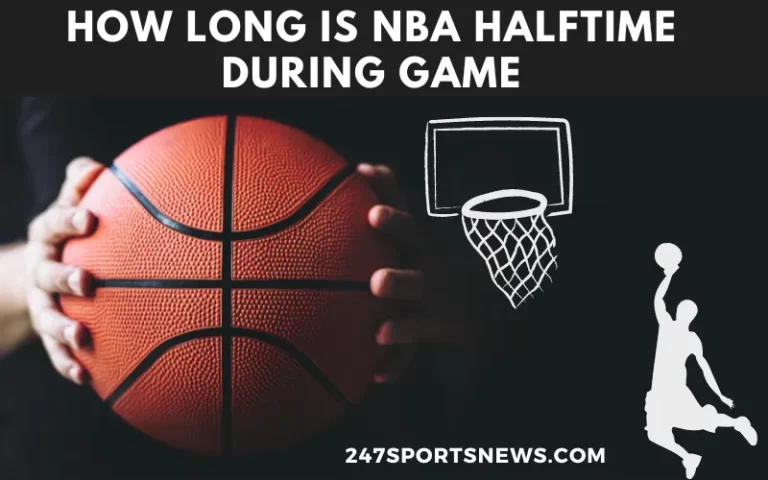What is the Bonus in Basketball? | Bonuses Types & Explanation
Basketball players must have quick reflexes to succeed., and have a thorough understanding of all of its complex rules and regulations. Ever observed how some basketball fouls are more expensive than others? Have you ever analyzed the difference between fouls that result in free throws and those that do not? Whether a team is in a bonus circumstance or not is relevant.
So, if you have any queries about what is the “bonus” in Basketball? Then we provide you with both a comprehensive explanation and a guideline.
What is Bonus in Basketball NBA?
The term “bonus” in the NBA (National Basketball Association) refers to the free throw bonus scenario during a basketball game. The “bonus” or “penalty” situation arises when a team commits several fouls in a quarter. It implies that when a foul occurs, regardless of whether it happens during a shot attempt or not, the opposition team is allowed to shoot free throws.
The bonus system was implemented to discourage teams from fouling each other too frequently and to give the fouled team a chance to score points from the free-throw line. It is always advised to consult the individual rulebook of the relevant basketball league for detailed details, as the regulations and terminology can differ slightly depending on the league.
How many Fouls to get in the Bonus NBA?
Once a team makes four team fouls in a quarter, they are in the bonus position in the NBA (National Basketball Association). A team is said to be in the Bonus if it has made four team fouls in a quarter. The fouled player will receive free throws if the defensive team commits any additional non-shooting fouls in the future.
What does Bonus mean in Basketball?
In Basketball, a bonus is a circumstance that changes the game’s free-throw shooting regulations. The term “bonus” is also frequently used to refer to the extra point or “free throw bonus.”
The Bonus is activated when a team reaches a predetermined threshold of team fouls during a given time frame, typically a quarter. The Bonus is normally activated when a team accumulates four fouls in a quarter in the NBA and many other basketball competitions. Any additional non-shooting fouls by the opposing team after a team enters the Bonus will result in the fouled player receiving free throws.
The bonus system operates as follows:
Before the Bonus:
The team that committed the foul is given possession of the ball for an inbound play during the first four team fouls in a quarter if the foul was committed while the player was not shooting.
Adding to the Bonus:
Any non-shooting foul committed by the other team results in the fouled player receiving free throws if a team commits its fifth team foul (reaches the Bonus). Depending on the regulations of the particular league, the player who was fouled is entitled to one or more free throws.
Shooting Fouls:
Regardless of whether the team is in the Bonus, if a player is fouled while attempting a field goal (a shot attempt), the fouled player receives free throws. They are known as “shooting fouls,” independent of bonus circumstances.
Counting free throws:
The fouled player has the chance for extra free throws depending on the number of free throws permitted by the Bonus if they successfully execute the first free throw. In the NBA, the fouled player shoots two free throws after the fifth-team foul. The player attempts three free throws for each team foul on the seventh and following ones.
When does the Bonus situation Start in Basketball?

Basketball’s bonus situation normally begins after a team commits a specified number of team fouls in a given time frame, usually a quarter. The bonus situation starts in the NBA and most other basketball leagues when a team commits its fifth foul in a quarter. Therefore, the opponent’s team enters the Bonus after a team commits its fifth team foul in a quarter, and any additional non-shooting fouls committed by the defending team result in the fouled player receiving free throws.
It’s crucial to keep in mind that the actual rules may vary slightly based on the specific league or competition, so it’s a good idea to get to know the rules of the league you’re watching or participating in to make sure you have accurate information about when the bonus situation starts.
What kind of Bonuses do NBA Players get?
Depending on their individual performance, team accomplishments, and other circumstances, NBA players may be eligible to receive various bonuses as part of their contracts. NBA players may be eligible for the following specific sorts of bonuses:
Team Achievements:
Players can receive incentives when their team does well, for example, by making the playoffs, winning a certain quantity of games, or reaching certain goals.
Performance Bonuses:
They are connected to a player’s on-court accomplishments and statistics. For instance, a player might be given a bonus if they meet certain benchmarks during a season for points, rebounds, assists, steals, blocks, or other statistical categories.
Playoff Bonuses:
For moving on to different rounds of the playoffs, players on teams who qualify for the NBA may be awarded bonuses. The bonus amount may increase the more a team advances.
All-Star Bonuses:
Players chosen to represent their country in the NBA All-Star Game may be awarded bonuses. It is an acknowledgment of their talent and popularity among peers and admirers.
Awards Bonuses:
Some players’ contracts include bonuses for earning specific honors like the Most Valuable Player (MVP) trophy, Rookie of the Year, Defensive Player of the Year, or Sixth Man of the Year.
Contract Milestones:
Bonuses may be awarded when a player signs a new contract, completes a specified number of seasons, or reaches certain contractual milestones.
Incentives for Achieving Benchmarks:
Players may be awarded bonuses for exceeding specific statistical thresholds compared to the league average. For example, shooting percentages are higher than the league average.
Minutes Played Bonuses:
Bonuses based on how long a player stays on the court during a game may be included in contracts.
Performance Escalators:
These escalating bonuses depend on how well a player performs in succeeding seasons. For instance, if a player meets specific requirements in the first year of their contract, they may be eligible for a bigger bonus in the second year.
Community and Marketing Activities:
Some contracts contain bonuses for participating in neighborhood gatherings, marketing campaigns, or public appearances on behalf of the team or the league.
NBA Summer League Bonuses:
Some contracts contain bonuses for participating in the NBA Summer League or for exceptional achievements in these exhibition games.
It’s crucial to remember that depending on individual player contracts, team discussions, and league regulations, the specifics of these bonuses can vary significantly.
What is the Bonus and Double Bonus in Basketball?
The terms “bonus” and “double bonus” in Basketball refer to particular circumstances involving free throws that arise when a team racks up a certain amount of team fouls within a given period, typically a quarter. Certain circumstances impact how free throws are given to the fouled team. Basketball leagues for professionals and beginners frequently employ the Bonus and Double Bonus.
Bonus:
If a team has a certain number of team fouls, the player can make a free throw whenever a player is fouled, regardless of whether the foul was committed during a shot attempt. Each non-shooting foul committed by the opposing team after a team enters the bonus results in free throws for the fouled player.
Double Bonus:
A team will receive the double Bonus, sometimes called the “two-shot bonus,” if they earn extra team fouls than necessary to receive the standard Bonus. The fouled player receives two free throws regardless of whether the foul happened during a shot attempt.
What is Bonus in College Basketball?
In college basketball, “bonus” describes a free throw scenario when a team reaches a specified limit of team fouls in a given period, typically a half. Similar to the bonus situation in other basketball leagues, this scenario impacts how free throws are awarded to the fouled team.
In college basketball, when a team reaches the Bonus, the other team always receives free throws when they are fouled, regardless of whether the foul was committed during a shot attempt. The Bonus is also occasionally referred to as the “one-and-one” Bonus.
How many Fouls for Bonus in College Basketball?
A team normally reaches the bonus period in college basketball after their opponent commits seven team fouls in a half. The opposing team is considered in the Bonus after a team commits its seventh team foul in a half. It indicates that if a player from the fouled team is fouled again, they will receive one free throw opportunity. The player can make a second free throw if the first free throw is made successfully. Both teams can win the recovery if the first free throw is missed.
The opposing team enters the “double bonus” when a team has 10 team fouls in a half. Regardless of whether the foul occurred while the player was shooting, the fouled player receives two free throw attempts in a double bonus scenario.
If a team commits more fouls than allowed in a quarter, they will face a bonus penalty in the NBA.
Only six personal fouls are allowed per player in the NBA before they are fouled out.
Players may sign one- or two-season minimum-wage contracts (but the contracts have no bonuses).






